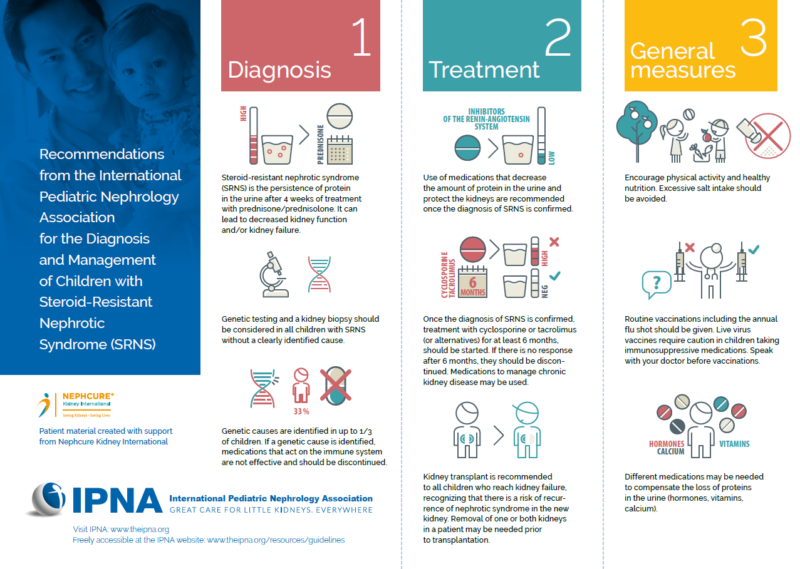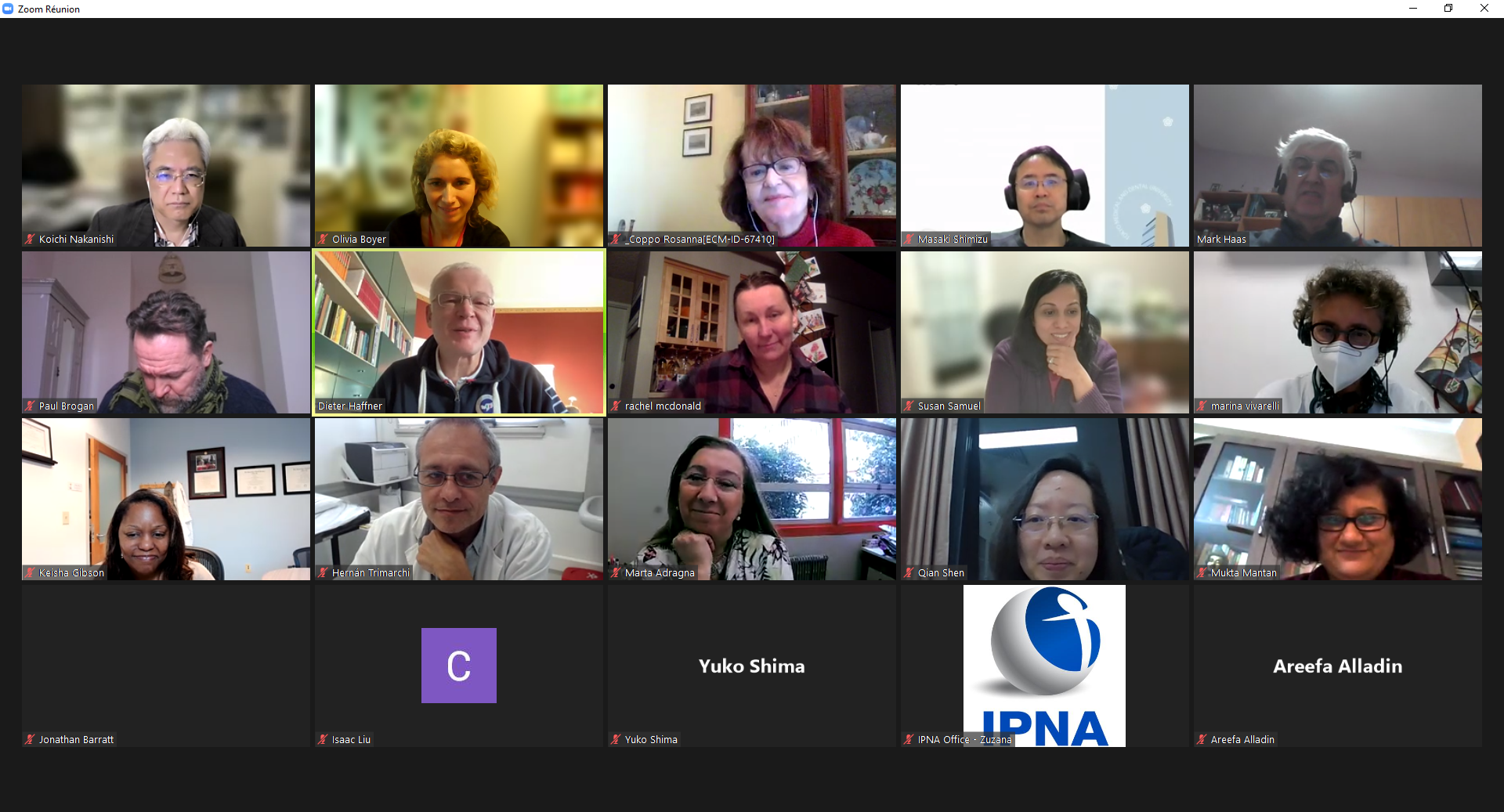- About
- Membership
- What we do
- What we do placeholder
- Pediatric Nephrology Training
- IPNA programs
- Joint Projects
- Resources
- Resources
- History Project
- Education Materials
- For patients and parents
- News & Events
- Industry


GREAT CARE FOR LITTLE KIDNEYS. EVERYWHERE.




IPNA reviews the best evidence in Pediatric Nephrology to produce or endorse guidelines, providing guidance on the best practices for diagnosing and managing pediatric kidney diseases.

INTRODUCTION
2nd IPNA guideline on management of steroid-sensitive nephrotic syndrome in children has gone online on October 22, 2022 in Pediatric Nephrology.
This guideline will help to improve the global care of children suffering from nephrotic syndrome.
Translations of this guideline as well as a brochure for patients and families will be available in 14 different languages soon.
Translations available in 14 languages

IPNA IgAN-V Guideline in Development
23.1. – 24.1.2023 IPNA IgAN/IgAV F2F meeting (hybrid) in Leuven, Belgium

3.1.2023 – Work in progress.
Another productive meeting of the IPNA Best practices & standards subcommittee for clinical practice recommendations for IgAN/IgA.

IPNA aHUS Guideline in Development
With the advent of the complement C5 antibody eculizumab, outcomes of aHUS patients have significantly improved including outcomes of patients with kidney transplants.
18.1.2023
IPNA aHUS guidelines in development. Stay tuned.

Given the rarity of aHUS and the resulting lack of randomized controlled trials, international treatment guidelines are currently not available and treatment recommendations are typically based on expert opinion. In addition, access to the prohibitively expensive eculizumab is limited to economically privileged countries thus creating an inacceptable and unjust global imbalance with respect to the management of aHUS patients. On this background and given its focus on the management of rare kidney diseases, IPNA initiated the development of clinical practice recommendations (CPRs) for aHUS. As for other IPNA CPRs, the new aHUS CPR will be developed applying the GRADE approach using PICO (population-intervention-comparator-outcome) questions on diagnosis and treatment of aHUS, will be based on information extracted from the available literature graded by evidence (“evidence tables”), and will eventually be published.
